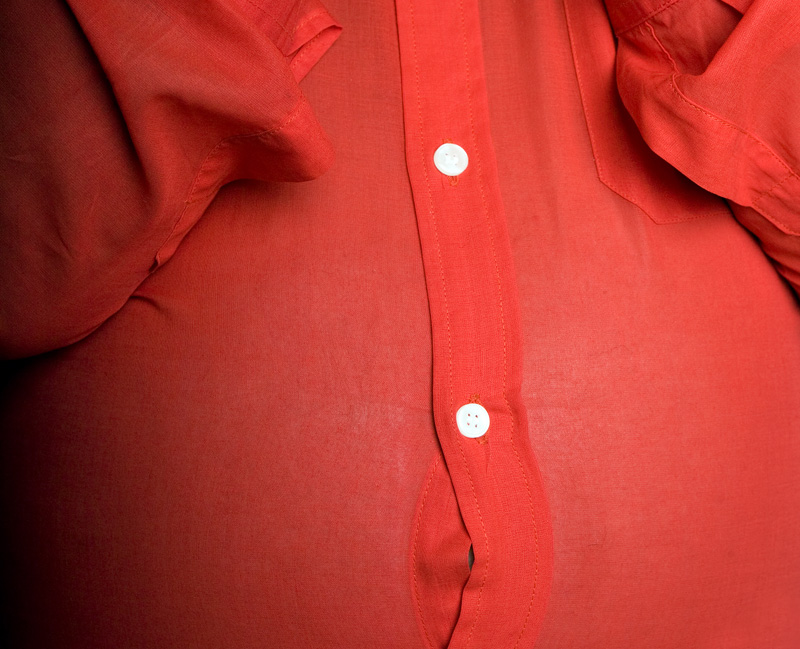Written by Susan Smigielski Acker
A big belly can spell big trouble.
Belly fat is more than just unattractive. It is dangerous to health and possibly a symptom of other issues.
Belly fat is there to insulate and protect our organs, but too much is not good. It is a sign that the body is not healthy including the organs, says Dr. Klinton J. Kranski, D.C., A.C.H., a Richmond chiropractor and dietician who frequently works with patients to reduce their belly fat.
Too much fat poses serious risk for heart disease, diabetes and certain types of cancer, says Dr. Jerry Nadler, a research physician at the Strelitz Diabetes Center at Eastern Virginia Medical School in Norfolk. The heart suffers when there is too much fat around it, he explains.
The problem of belly fat is not uncommon.
“It is becoming the norm in our culture,” says Nadler, who is especially concerned about children.
“We are seeing more and more children who are between the ages of 10 and 12 that have Type 2 diabetes caused by unhealthy eating. And I am seeing more children who are younger than that each year,” he says.
What We Consume
“Our research shows that much of it has to do with people eating too much processed food, says Nadler. “They are eating a high-fat, high-carbohydrate diet. They are eating a lot of dense food.”
Dr. C. Renee Moss, a medical bariatrician with Riverside Medical and Surgical Weight Loss Center in Williamsburg and Newport News, says the problem extends beyond America’s penchant for processed foods. For example, corn-fed cattle will contain more sugar and fat than grass-fed cattle, she says.
Kranski points to alcohol consumption as a factor. Consuming too many alcoholic drinks on a daily basis can cause the liver to become bigger, resulting in the belly getting bigger, he says.
Stress is a Problem
There are some elements of how belly fat develops that have nothing to do with what we eat.
“There are several levels of nature that are fighting against us,” says Moss.
Stress is big factor.
Kranski says that during times of increased stress the adrenal (stress) glands can overreact and contribute to weight gain, especially in the belly. Many experts believe that high levels of cortisol, the stress hormone produced from the adrenal glands, adds to belly fat.
When Moss works with patients she closely examines their lifestyle and how much stress is involved in their day-to-day living.
“Many times the challenge is their environment. If they are frequently in stressful situations such as balancing work and family life, they are more likely to have weight gain,” she says. Moss and her colleagues use certain techniques, such as breathing exercises, to help reduce stress. Those techniques can help replace the use of food as stress relief.
“One of the hardest parts for many of my patients is getting them to relax. But it’s what the body needs,” Moss says. “Many people aren’t aware they are under stress. They really need to look at their lifestyle.”
Nadler agrees.
“We are living a high-stress society with work and other factors,” he says. “It has become the American lifestyle.”
Medication Helps and Hurts
Moss says medications like antidepressants can cause fat to deposit around the midsection. Kranski points to sleep aids in particular, even over-the-counter varieties, as contributors to excess belly fat. And some pain medications cause fat to burn slower, he adds.
Is Your Body Working Against You
While genetics can contribute to a large belly, Nadler warns against giving up on weight loss just because biology may be working against you.
“You should still get exercise and eat right and not just blame it on your genes,” he says.
Gender is a factor as well. Men tend to lose weight easier than women. Women of peak child-bearing age are less likely to have belly fat because more fat is being deposited in their hips. However, when women enter menopause fat accumulates around the midsection. This is especially true for women who have had a baby or two, Moss says.
Thyroid imbalance can cause weight gain, too. A person with an underactive thyroid will have low metabolism.
Getting older can also make belly fat an issue, but Moss warns of giving into age as an excuse. “It just means that the older you get, the harder you need to work at it,” she says.
What Can be Done
Working at it means adopting a low-calorie, high-protein plant-based diet with little processed foods. As for exercise, Nadler recommends walking, especially for those who currently do not exercise.
To lose weight successfully, Moss says you must continue to work at it: “It is like high-blood pressure,” she says, “there is no one-time thing that is going to stop it. It has to be consistently monitored and maintained.”

